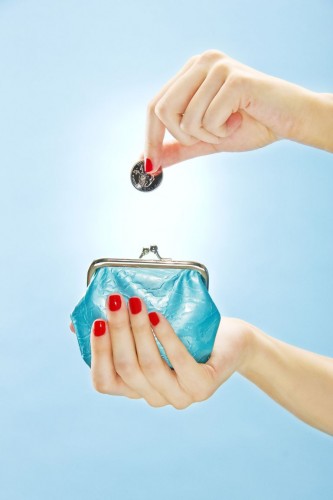5 Smart Habits to Steal From Financially Successful Women

Money is a source of stress in most people’s lives. But just as you’d take the time to address the effects of stress on your mental health, prioritizing your financial health is equally as important.
When it comes to feeling good about your spending and saving, it’s not always one size fits all. In fact, taking time to explore your own relationship with money can help you figure out a long-term personal finance plan that fits your lifestyle.
To help jump-start your strategy, we asked five women to share their smartest money habits. Take notes!
Meet the money-savvy women:
- Marina Tarasova, cofounder of Paloma Health, an online medical practice for thyroid wellness
- Elaine Larsen, world champion race car driver and founder of the multi-million dollar Larsen Motorsports High Performance Vehicle Company in Palm Bay, FL
- Mari Katsumura, fine-dining chef in Chicago
- Karrie Leung, founder of Karrie Leung PR, a hospitality and restaurant publications firm
- Rose Sias, Union Construction Contractor that works in civil engineering (bridges, roads, tunnels, streets and foundations of buildings)
1. Reassess your recurring costs.
Putting your internet and cellphone bill on autopay might be hassle-free, but just don’t forget about it indefinitely. Instead, schedule time to reassess your monthly bills, Tarasova recommends. “About two to three times a year, I research and negotiate some of our recurring costs to get better rates: car insurance, cell phone bills, and subscriptions—it’s amazing how when you’re able to cancel, they offer better rates!” she says.
2. Ask lots of questions.
When Larsen first started meeting with her financial advisor, she was intimidated by the financial language the advisor used. Her initial thought was to start “Googling under the table,” Larsen says.
Later, she realized those tough financial problems are meant to be discussed in the open. “It was more about finding my voice and making myself heard, and not being afraid to say ‘excuse me’ politely. People want to be understood, but it took a lot of time and gaining a lot of confidence to actually ask the questions,” says Larsen.
Once she did have the confidence, Larsen purchased an annuity so that she and her husband Chris, co-owner of Larsen Motorsports, wouldn’t run into any surprises post-retirement.
What’s an annuity? An annuity creates a stream of income you can use during retirement. You contribute a specific amount of money to an insurance company, and then either right away or at a later date, you receive regular payments for whatever period you determine or for the rest of your life. To learn more, visit The Alliance for Lifetime Income, a nonprofit educational organization formed and supported by some of the nation's leading financial services companies.
3. Get to know your vices.
If you have a habit of purchasing food and drinks while on the go, keeping low-cost substitutes within reach can help you curb unnecessary spending, says Katsumura.
“It’s easy to spend money on impulse purchases out of convenience, such as going to get coffee before work or getting a drink after [work],” says Katsumura. But those indulgences can add up. Of course, catching up with friends over happy hour is important, but routinely grabbing food and drinks because it's convenient isn't a need. Instead of hitting up the vending machine for your afternoon snack, keep
a bag of almonds or fruit gummies in your purse.
4. Track smaller expenses, too.
You might not think twice about that favorite drugstore mascara you buy every couple of months, but tracking even the smallest purchases is essential: “It helps me sleep at night and enjoy life a little more,” says Leung.
5. Save, save, save.
“I’ve blown a lot of money in my youth instead of saving and investing,” says Sias. “I partied straight into my 40s and used much of my disposable income to have fun! I did always save, but I could have [saved] so much more.”
Her advice: Save up at least six months of monthly expenses to fall back on. And don’t skimp on things like medical coverage and home insurance: “These are two expenses that can save your financial life if you get sick or your home suffers from an unexpected disaster,” Sias says. The sooner you invest in your future, the better your future will be.
Credit : oprahmag.com






